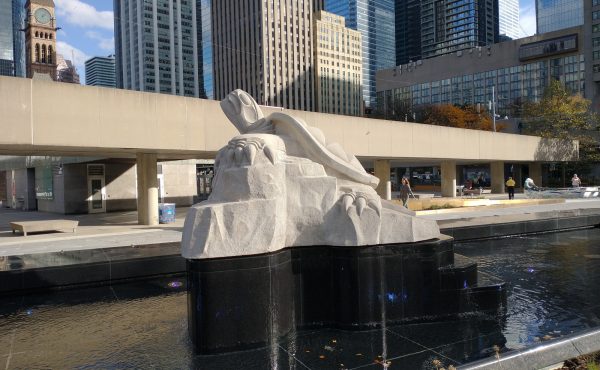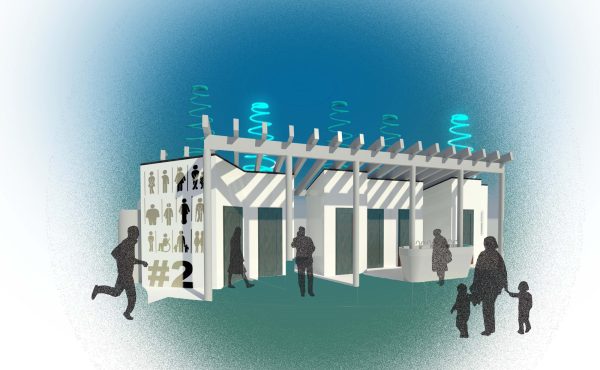When a provincial or federal government runs out of things it can or wants to do, it will often prorogue parliament before the end of a scheduled session and spend a few months readying a new parliamentary agenda that it presents fresh with a throne speech at the beginning of that parliament’s next session. Municipal government doesn’t have sessions per se so when Rob Ford ran out of ideas he could or wanted to implement it became embarrassingly obvious. Agendas that used to be measured in inches are now described in millimeters.
Ford’s speech Tuesday to a Bay Street lunch crowd was supposed to change that. Billed for weeks as the blueprint for the remaining two-and-a-half years in Ford’s term, the speech focused on economic development and, compared to his recent speech at the Toronto Real Estate Board, sought the political high ground. While Ford’s friends called it vision, his critics say the lack of specificity made the speech meaningless.
Given the menu of options local politicians have been given from the myriad think tanks, interest groups, academics and their own economic development department, the frustration with Ford’s reliance on generalities in a speech that was scheduled many weeks ahead of time is not without cause. But that Ford has taken himself out of the weeds of municipal government and given an earnest effort to think as big as he can shouldn’t be lost on us either.
The five pillars Ford says he will flesh out in the coming months are:
- Place a focus on attracting commercial development to create jobs and grow the tax base;
- Reduce commercial tax rates to make Toronto a more competitive place to do business;
- Improve the way Toronto markets itself as a place to do business, and make it easier for businesses to deal with local government;
- Attract the skilled workers businesses need; and
- Make all forms of transportation (land, air, water, rail) effective to support commerce.
The funny thing about those five ideas: they could have come out of former mayor David Miller’s mouth. In fact, in his own way, Miller did endorse those directions or directions very similar to them. Miller propped up the booming development industry during the recession by freezing development charges, installed a policy that is bringing the ratio of business to residential property taxes into balance over the course of many years, created a new marketing strategy to attract businesses to Toronto and supported the recruitment of businesses through the creation of Invest Toronto, supported all kinds of initiatives to attract talent to Toronto (particularly highly skilled immigrants), and aggressively pursued transit expansion. Miller even created property tax incentives for development by prized business sectors like biomedical and manufacturing.
All this is to say that Ford’s big picture ideas are not new, even if they’re packaged differently. Though whether these largely agreeable ideas translate into agreeable actions will only be known when Ford presents specific proposals to attract, retain and grow a healthy local economy.
What should, however, ring alarm bells is that seemingly Ford views economic development as our city’s lone raison d’etre. Social services, health, culture and the environment were essentially absent from Ford’s speech. The closest Ford came to acknowledging these needs within our city was to recognize that skilled workers choose Toronto for its livability.
But instead of talking about plans to support these municipal services, Ford said programs outside of the economic development department were deficient for being oriented toward outcomes associated with their respective programs rather than economic development. Whether it’s libraries, parks or culture grants, there is no doubt that these programs, by virtue of their efficacy and popularity, enhance the economic vitality of Toronto. But to suggest that libraries, for instance, will be graded more on economic metrics than on literacy is to reveal a mayor that is thinking big with his blinders still on.
photo by Wylie Poon





2 comments
Yes the annoucement lacked details. Though anything will be better than the status quo. Miller had a nasty habit of only allowing assessment related tax shifts increase commercial taxes. When assesment related shifts would increase commercial and multi residentialtaxes they were allowed. When they would reduce them, he protected only home owners by preventing any shift. Progressive indeed.
It is quite simple how to decrease the cost of living and doing business: change zoning (upzone all properties to five storeys, eliminate minimum setback requirements, and require the ground floor of new buildings to be used for retail), development charges (to zero, because the infrastructure is largely already in place, and the increase in property taxes collected for medium- and high-density buildings is far in excess of the capital cost of new infrastructure) and property taxes (based primarily on the value or size of the land, rather than the current situation of primarily the building). High-density use of the land has lower capital (material, labour), operational (water, sewer, heating, electricity) and maintenance costs than low-density use of the land.